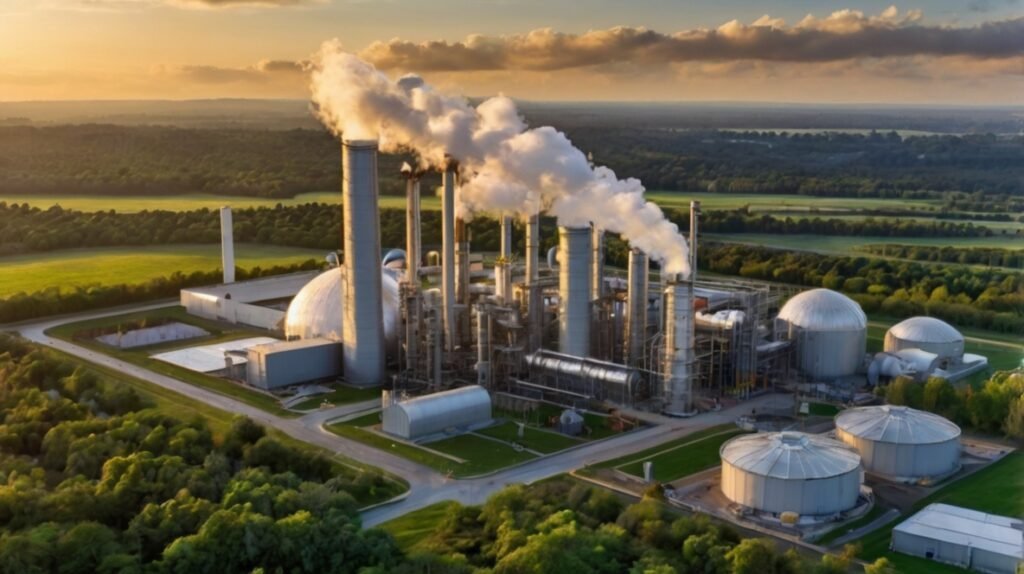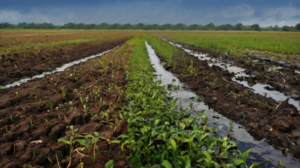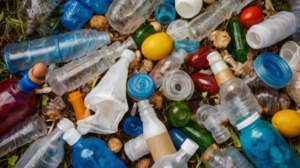The Impact Of Mindful Water Usage On Our Environment

Mindful water usage refers to the conscious and intentional actions taken to conserve and respect water resources in daily life. It involves recognizing the importance of water conservation amidst the growing pressures of population and resource scarcity. Currently, 2.4 billion people live in water-stressed countries, highlighting the urgency of this issue.
Adopting mindful practices in water usage is crucial for reducing strain on our dwindling water resources and protecting ecosystems. By making informed choices, we can significantly contribute to sustainable water management and enhance community resilience against water scarcity.
Environmental Benefits of Mindful Water Usage
Mindful water usage leads to a significant reduction in water wastage. In the U.S., the average family wastes up to 180 gallons weekly, totaling nearly 9,400 gallons annually. By addressing unnoticed leaks and using appliances more efficiently, we can prevent billions of gallons from being wasted every year. This simple act not only saves water but also helps ensure availability for communities and ecosystems alike.
Improving ecosystem health is another critical benefit of mindful water practices. Water is a vital resource for all forms of life, supporting diverse ecosystems. By conserving water, we maintain the natural flow of rivers and wetlands, which is essential for preserving biodiversity. This practice helps protect habitats and species that rely on stable water conditions, as highlighted in this article.
Moreover, mindful water usage contributes to a decrease in energy consumption associated with water processing. Reducing water waste means less energy is needed for treatment and distribution, which can lower greenhouse gas emissions. As noted, “Conserving water is crucial for both environmental sustainability and energy efficiency.” By embracing mindful practices, we collectively contribute to a healthier planet.
Practical Strategies for Mindful Water Usage
Adopting mindful water usage starts at home. Here are some practical tips to reduce household water consumption:
Fix leaks promptly to avoid water loss.
Turn off the tap while brushing teeth or shaving.
Use a wash basin for handwashing dishes instead of running water.
Run dishwashers and washing machines only with full loads.
Consider installing WaterSense labeled products to maximize efficiency.
In addition to these tips, technology plays a crucial role in conservation. Innovations like smart irrigation systems and advanced leak detection systems help ensure optimal water usage. These technologies allow for better monitoring and management of water resources, reducing waste significantly.
Community initiatives also foster a culture of conservation. Programs such as “Shower Power” and educational campaigns, like “Freddy the Fish Teaches About Stormwater”, engage residents in mindful practices. Such efforts can create a ripple effect, encouraging others to adopt similar habits.
| Strategy | Water Usage (Gallons/Week) |
|---|---|
| Before Implementation | 500 |
| After Implementation | 350 |
By taking these steps, we can collectively make a significant impact on water conservation.
Mindful Water Usage in Agriculture
The agricultural sector is a significant consumer of freshwater resources, utilizing approximately 70% of total freshwater withdrawals globally. In many low-income countries, this figure can exceed 80%, highlighting the critical role agriculture plays in water consumption.
To optimize water usage, farmers employ various techniques. Drip irrigation is one such method, delivering water directly to plant roots, enhancing yields while conserving water. Other strategies include capturing runoff for reuse and irrigation scheduling based on weather forecasts.
Case studies illustrate the success of these practices. For example, Worthen Farms implemented a comprehensive water management strategy, resulting in significant reductions in water usage. As noted in their report, “Our innovative techniques have transformed our water consumption and improved crop health simultaneously.” This underscores the potential for mindful practices to not only conserve water but also enhance agricultural productivity.
Industrial Impact of Mindful Water Practices
Water is a critical resource for many industries, with the agricultural and industrial sectors accounting for about 90% of direct water withdrawals. Notably, the agricultural sector, textile industry, meat production, beverage sector, and automotive manufacturing are among the largest consumers of water. For example, producing a pair of jeans can require approximately 2,866 gallons of water.
Reducing water consumption offers multiple benefits, including cost savings, improved operational efficiency, and enhanced brand reputation. Industries that adopt mindful practices not only contribute to sustainability but also prepare for stricter regulations related to water usage.
Innovative technologies play a pivotal role in this transformation. Solutions such as smart irrigation systems and AI-driven water management can significantly enhance conservation efforts. Additionally, nanotechnology is revolutionizing water purification, while blockchain enhances accountability in water management. These advancements not only help industries save water but also promote a culture of responsibility towards our precious resources.
FAQs on Mindful Water Usage
What are some common misconceptions about water conservation? Many believe that since the Earth is covered with water, conservation isn’t necessary. However, over 97% of this water is seawater and undrinkable. Additionally, some think that all water used gets replenished through the water cycle, but this process takes time, and many aquifers are being depleted faster than they can be refilled.
What are effective water-saving techniques? To conserve water, fix leaks in your home, turn off the tap while brushing your teeth, and use a basin for washing dishes. Consider installing WaterSense labeled products which are designed for efficiency. In the garden, choose drought-resistant plants and water wisely.
Are water-saving devices worth the investment? Yes, many water-saving devices pay for themselves quickly through reduced utility bills. Government incentives may also be available to help offset initial costs. Overall, implementing these technologies can lead to significant long-term savings and environmental benefits.
https://blissfullway.com/5-effective-nature-based-therapies-you-can-try-today/
Conclusion
In summary, adopting mindful water usage is essential for addressing global water scarcity and protecting our environment. By understanding common myths about water conservation, implementing effective techniques, and exploring the benefits of efficient water usage, we can all contribute to a more sustainable future.
Now is the time to take action. Start by fixing leaks, using water-saving devices, and choosing drought-resistant plants in your landscaping. Every small change can lead to significant improvements when we come together to conserve water. Embrace mindful practices in your daily life and help ensure a healthier planet for future generations.







